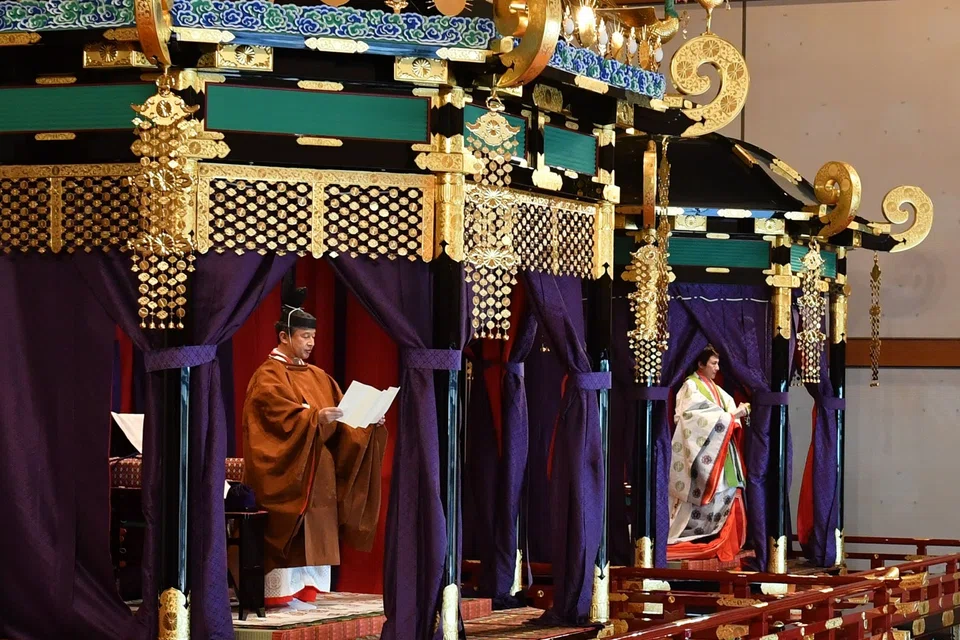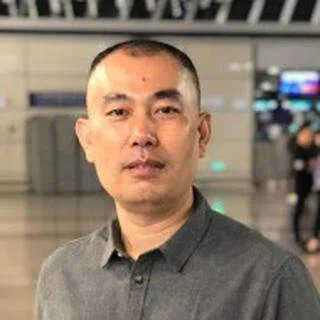Romance of the Three Kingdoms: US, China and Japan
October 22 marked the enthronement ceremony of Japan's new Emperor, Emperor Naruhito. China sent a full state-level representative, Vice President Wang Qishan, while the US sent a ministerial level dignitary, ethnic Chinese minister Elaine Chao to attend the ceremony. This unusual arrangement did not escape the scrutiny of analysts. Beijing researcher Zhang Jingwei cites the Chinese historical novel Romance of the Three Kingdoms and opines that global dynamics is undoubtedly shifting.

In the afternoon of October 22, the enthronement ceremony for Japan's new Emperor Naruhito was held. Distinguished guests who witnessed the event included heads of states, royalties and high-ranking government officials from about 180 countries. Among them was Wang Qishan, President Xi Jinping's special envoy and China's Vice President.
Attention was quickly drawn to a few noteworthy observations. Of the special envoys who attended the ceremony, Vice President Wang was of the highest level - i.e., a full state-level representative. In contrast, the US only sent a ministerial-level dignitary, the ethnic Chinese minister Elaine Chao.
As we recall, back in 1990 when Emperor Akihito was enthroned, China dispatched a governmental representative, Vice Premier Wu Xueqian of the State Council, while it was Vice President Dan Quayle who attended the ceremony on behalf of the US. Now, when it came to Emperor Naruhito, Vice President Mike Pence failed to show up, ostensibly because he was scheduled to be somewhere else, resulting in the downgraded delegation on the Americans' part.

The shift from a mere governmental representative to a presidential special envoy highlighted China's respect for the Japanese Emperor's enthronement. In contrast, the American official sent to the ceremony was not quite commensurate with the close ties between Japan and the US. The choice ran counter to the political tradition of US-Japan relations.
Let us bear in mind that China is the neighbour that Japan is most wary of, whereas America is the ally that Japan relies on most. At Japan's most important political ceremony, earnest treatment from one nation and the devaluation from the other were sharply contrastive, revealing something of a change in China-US-Japan relations.

Between China and Japan, relations are not only going back on track but are actually deepening. Although the two countries had gone on a detour, and some issues of history and current realities remain, the general gloom over their ties has been lifted, such that the big picture of international dynamics is entering a new phase.
In May last year, Chinese Premier Li Keqiang paid an official visit to Japan. Five months later, it was Japanese Prime Minister Shinzo Abe who visited China. When Xi Jinping attended the G20 Summit in Osaka in June this year, it was the second visit to Japan by a Chinese President in nine years. During the summit, Xi Jinping accepted Abe's invitation in principle, so he could be going to Japan again for a state visit in spring 2020. All in all, China-Japan relations are warming up and riding on an updraft across the board.
However, Abe had spoken of how "a true gentleman changes like a leopard" (a quote from the I Ching), underscoring the importance of meekness before the US for the sake of Japan's interests.
What's going on between the US and Japan is, on the other hand, rather nuanced. That the two countries are allies remains generally unchanged, but the affinity is turning into alienation in the Trumpian era. As Japan sees it, Donald Trump's rise to presidency was something of an accident. Abe would rather have Hillary Clinton lead America, so that the golden age of bonding between the two countries, as it were, might continue from Obama's time.
After Trump was elected President, Abe displayed much of a humble and even lowly attitude. Before Trump took office, Abe went to visit him personally and played golf with him. Abe even fell down gracelessly during the golf session. The impression given was that Japan's right-wing and longest-serving Prime Minister since World War II seemed a little self-degrading and obsequious before the conceited Trump. However, Abe had spoken of how "a true gentleman changes like a leopard" (a quote from the I Ching), underscoring the importance of meekness before the US for the sake of Japan's interests. Clearly, in order to maintain a personal connection with Trump and to strengthen the US-Japan security alliance, Abe had made compromises to the maximal degree for the greater good.

Unfortunately for him, Trump threw the Trans-Pacific Partnership (TPP) out of the window as soon as he came to office. This was followed by a series of withdrawals from international commitments. In addition, Trump went into maximum-pressure, all-front trade war mode, striking even at Japan, which stood amongst America's allies. As the US imposed tariffs on steel and aluminium imports aggressively, Japan was not exempted. The Land of the Rising Sun still bears painful memories of earlier trade wars unleashed by America. When Japan was working to become the world's second largest economy, the US had never ceased to wage trade war on it, which culminated in its being forced to sign the Plaza Accord in the late 20th century.
Under such circumstances, as hard as it strives to maintain its alliance with America, Japan is also taking two other actions at the same time - huddling together with the European Union by signing an Economic Partnership Agreement (EPA) with it; and proactively improving relations with China.
Trade wars aside, America is also raising its security charges for stationing troops in Japan, dragging the postwar alliance of the two countries down to the level of the mercantile and philistine. Admittedly, from East Asia to NATO, America acts like a bully everywhere in the domains of economy, trade and security, but the Trumpian policy of maximum pressure truly drives Japan into distress and anxiety.
Under such circumstances, as hard as it strives to maintain its alliance with America, Japan is also taking two other actions at the same time - huddling together with the European Union by signing an Economic Partnership Agreement (EPA) with it; and proactively improving relations with China. As an outward-facing country, Japan lacks the support of a deep domestic market, and thus it shares a common interest with both China and the EU in saying 'no' to trade protectionism and unilateralism.
Given that Japan respects the strong and disdains the weak, improving and deepening ties with China is also a choice made in line with the development of the times.
Japan is beginning to show flexibility in its stance towards the Asian Infrastructure Investment Bank (AIIB) and the Belt and Road Initiative spearheaded by China. With regard to the (10+6) Regional Comprehensive Economic Partnership (RCEP), initially launched by the ten countries of ASEAN and of which six additional countries (China, Japan, South Korea, Australia, New Zealand, India) are a part, Japan is also inclining towards more active participation.
Trump's non-differentiating policy of maximum pressure is leading to a reshuffling in the relations between major powers. Cracks have appeared in America's rapport with Japan and the EU. The notion that the US and China shall be the only two superpowers is becoming the norm. China and Japan are walking closer together. On Trump's scale, Japan and the EU count only as minor partners to America, whereas China is the true rival to wrestle with. While Japan is being taken lightly by the US, America's trade war on China-coupled with the grappling over technological advancement-is making China stronger. Given that Japan respects the strong and disdains the weak, improving and deepening ties with China is also a choice made in line with the development of the times.
By sending a full state-level, presidential special envoy to the enthronement ceremony of the new Japanese emperor, China exhibited Oriental wisdom. The US, on the other hand, made Japan suffer dishonour before the world by dispatching a ministerial representative to the grand event. The subtleties in such arrangements reflect the realities of the contemporary Romance of the Three Kingdoms, so to speak.
While it is true that nothing lasts forever in international relations except the interests of realpolitik, the global dynamics is undoubtedly shifting. As major powers, China and Japan may stand opposed ideologically, but they do belong to the same sphere of culture and civilization. In view of this fact, how the two countries will go on from here and how the "romance" of them and the US will unfold in the future are very interesting to observe.





![[Photos] Fact versus fiction: The portrayal of WWII anti-Japanese martyrs in Taiwan](https://cassette.sphdigital.com.sg/image/thinkchina/3494f8bd481870f7c65b881fd21a3fd733f573f23232376e39c532a2c7593cbc)